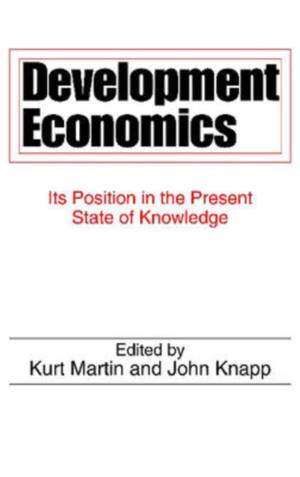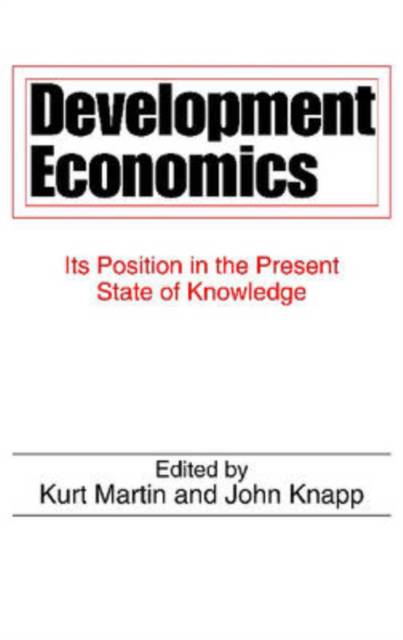
- Retrait gratuit dans votre magasin Club
- 7.000.000 titres dans notre catalogue
- Payer en toute sécurité
- Toujours un magasin près de chez vous
- Retrait gratuit dans votre magasin Club
- 7.000.0000 titres dans notre catalogue
- Payer en toute sécurité
- Toujours un magasin près de chez vous
Development Economics
Its Position in the Present State of Knowledge
John Knapp, Kurt MartinDescription
Interest in the problems of underdeveloped economies has increased since the early 1950s, and is now a primary topic in university courses. When this book was originally published, it reflected a sense among some economists that current, orthodox economic theory is inadequate in this field.
The volume includes leading American and non-American economists. The discussion of the content of courses was, in the nature of things, an extension of the discussion on the state of knowledge and reflects the period immediately prior to initial publication. Some of the issues continue to be debated, including the balance of instruction between macro- and micro-economics, the place of mathematics and econometrics, the question of the desirability of linking the study of economics with studies in administration, languages, political science, sociology or even engineering.
Development economics is now an established subject in the teaching curricula of most universities. The attention of the volume is focused on the problems of creating courses of study in subjects relevant to development within some framework specially designed for the purpose. The problems of organizing such courses concerned the length of courses, the type of students to which they would cater, the qualifications and standards required for admission and successful completion of courses, and so on.
The balance of instruction between macro- and micro-economics, the place of mathematics and econometrics, the question of the desirability of linking the study of economics with studies in administration, languages (in connection with area studies), political science, sociology or even engineering, the merits of methods like case studies, workshops and training in field work, are all discussed.
Spécifications
Parties prenantes
- Auteur(s) :
- Editeur:
Contenu
- Nombre de pages :
- 256
- Langue:
- Anglais
Caractéristiques
- EAN:
- 9780202361482
- Date de parution :
- 15-01-08
- Format:
- Livre broché
- Format numérique:
- Trade paperback (VS)
- Dimensions :
- 154 mm x 226 mm
- Poids :
- 394 g

Les avis
Nous publions uniquement les avis qui respectent les conditions requises. Consultez nos conditions pour les avis.






